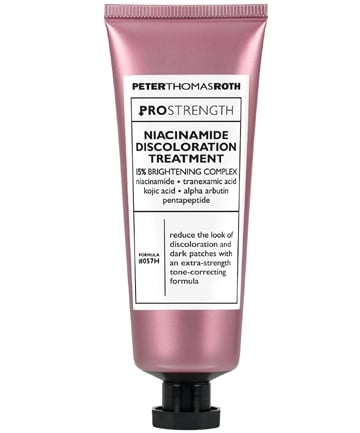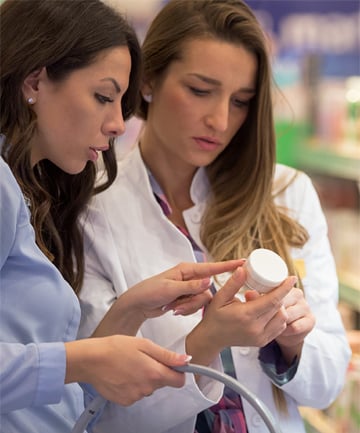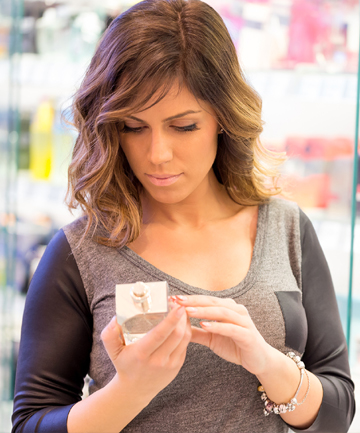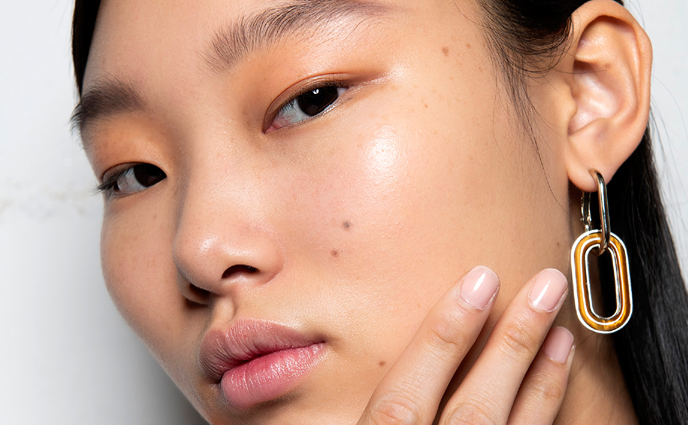Hydroquinone is a very popular and effective lightening agent that can help reduce dark spots and brighten your skin. However, it's quite strong and it shouldn't be used by those who are pregnant and should only be used sparingly.
"Patients use this type of product often to treat skin conditions like melasma. While it can be very effective, long term use can cause a blue-black patches to occur on the treated skin. This side effect is called ochronosis and is not easily reversed," explains Dr. Blair Murphy-Rose, a board-certified New York City dermatologist and clinical assistant professor at NY Presbyterian Hospital — Weill Cornell Medical Center.
Vitamin C and niacinamide are both great lightening alternatives to hydroquinone. Try The Ordinary Vitamin C Suspension 23% + HA Spheres 2%, $5.80 and Peter Thomas Roth Pro Strength Niacinamide Discoloration Treatment, $88.
You'll often find alcohol or ethanol in toners and other skin care products that tout de-greasing and oil-zapping benefits.
"While alcohol and ethanol can degrease the skin, they can be very irritating and drying, stripping your skin of its protective barrier," says Dr. Charlotte Birnbaum, a board-certified dermatologist at Spring Street Dermatology. "It does little to improve skin and the dryness it causes prevents tolerability of more proven anti-aging and anti-acne ingredients, like retinols."
In general, she says to avoid products with ethanol, denatured alcohol, ethyl alcohol, isopropyl alcohol, SD alcohol, or benzyl alcohol.
Image via Yumi mini/iStock/Getty Images Plus/Getty
The "chemical versus physical" sunscreen has been an ongoing debate in the dermatology world, and ultimately what matters most of all is that you're wearing SPF at all. That said, there's an increasing number of dermatologists who advocate for mineral-based sunscreens, and there's fortunately been an uptick in sophisticated, lightweight, easy-to-wear formulations.
"Physical sunscreens block a wide range of UV wavelengths, they are photostable, and there are fewer concerns about their potential adverse effects both to the body and to the environment," explains Dr. King. "Additionally, physical sunscreens are less likely to clog pores and irritate complexions, particularly for those with sensitive skin."
Examples of chemical sunscreen ingredients include avobenzone, octinoxate, and oxybenzone, while mineral-based sunscreen ingredients are typically zinc oxide and titanium dioxide. One of our favorite mineral sunscreens is Versed Guards Up Daily Mineral Sunscreen Broad Spectrum SPF 35, $21.99.
This might sound like something you don't have to worry about, but formaldehyde (and formaldehyde-releasing agents) are actually still found in skin care products and cosmetics.
Dr. King says, "These are a common cause of contact dermatitis and irritation of the skin. Formaldehyde is also a known carcinogen. Specifically, quaternium-15, DMDM-hydantoin, imidazolidinyl urea, and diazolidinyl urea are all formaldehyde releasers."
These ingredients are typically incorporated to kill microorganisms, but there are alternatives that do work. Check the ingredient list for these biggies and avoid them.
Image via zoranm/E+/Getty
It's not just a tongue twister, methylisothiazolinone is a common skin care ingredient that can cause allergic reactions in many skin types. "MI is a preservative used to prevent bacterial overgrowth in cosmetics and household products, such as make-up remover wipes, shampoos, deodorants, detergents, moisturizers, make-up, and baby wipes," says Dr. Birnbaum. "It is one of the most common ingredients to cause allergic contact dermatitis."
Image via zoranm/E+/Getty









